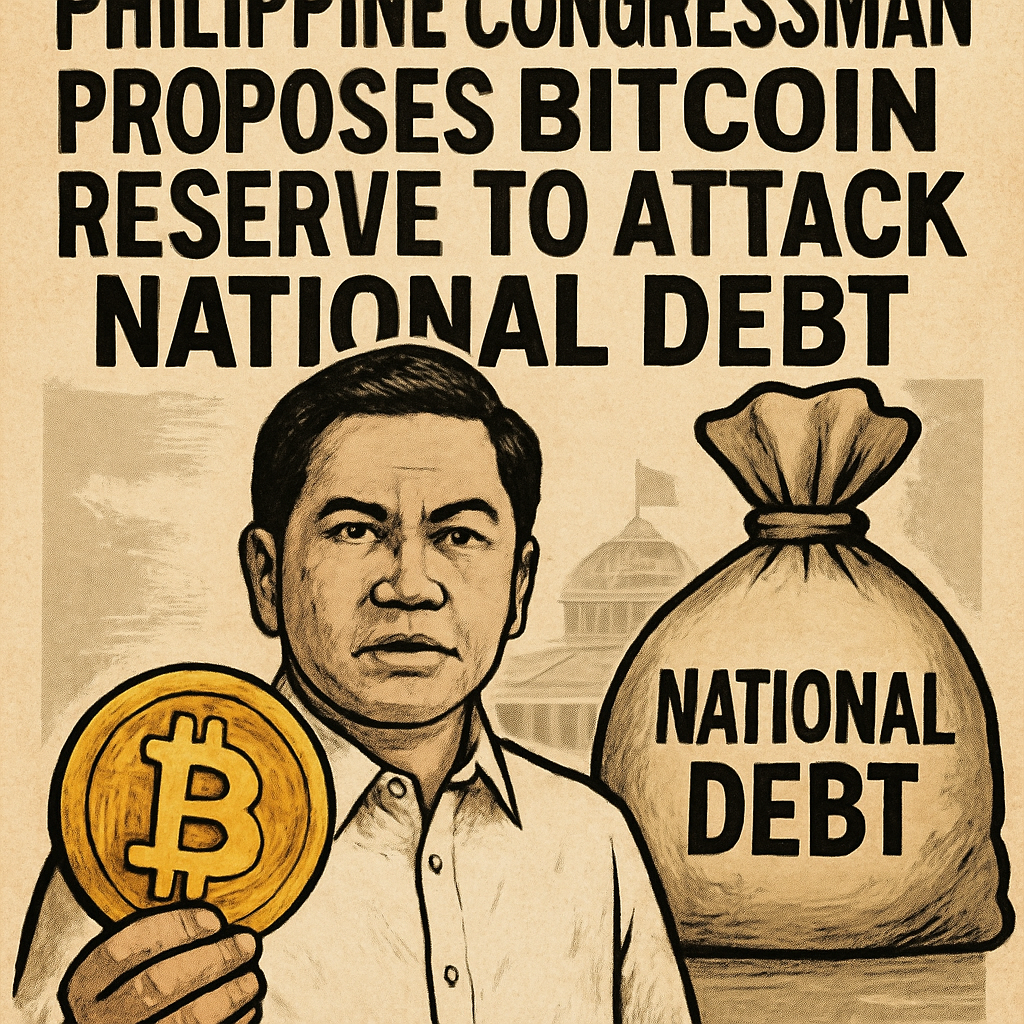On August 25, Representative Miguel Luis R. Villafuerte introduced the Strategic Bitcoin Reserve Act in the Philippine House of Representatives, proposing creation of a government-run bitcoin reserve to diversify national assets and support debt reduction. The bill mandates the Bangko Sentral ng Pilipinas (BSP) to acquire 2,000 BTC annually for five years, accumulating a total of 10,000 BTC, with funds accessible only for sovereign debt repayments during a 20-year lockup period.
The legislation draws inspiration from commodity-based strategic reserves such as the U.S. Strategic Petroleum Reserve and Canada’s maple syrup stockpile, aiming to leverage bitcoin’s deflationary characteristics to hedge against peso depreciation and inflationary pressures. Villafuerte’s proposal requires that cold storage facilities be established across multiple geographic locations in the Philippines, audited quarterly through cryptographic attestation and verified by independent third parties.
Under the act, the central bank governor would be constrained from selling more than 10 percent of the reserve within any two-year window once the initial 20-year period lapses. The bill stipulates that forks and airdropped tokens derived from the holdings must be retained for at least five years, with explicit protections ensuring private ownership and non-confiscation of bitcoin holdings by citizens.
Citing recent national debt levels approaching $285 billion, or 60 percent of GDP, proponents argue that a bitcoin reserve could act as a countercyclical asset cushion during fiscal stress. Critics, however, caution about bitcoin’s price volatility and call for robust risk management, including the use of derivatives and layered hedging strategies to mitigate extreme price swings.
The BSP is tasked with formulating implementation guidelines, including criteria for wallet management, security protocols and reporting standards. The act also requires periodic public disclosure of reserve valuation, transaction records and audit outcomes to ensure transparency and accountability.
If enacted, the Philippines would join a limited cohort of nations exploring sovereign crypto reserves, signaling a novel approach to public finance. International observers and credit rating agencies will monitor the policy’s impact on fiscal stability and investor confidence, as other emerging economies consider similar diversification strategies amid evolving global financial dynamics.

Comments (0)